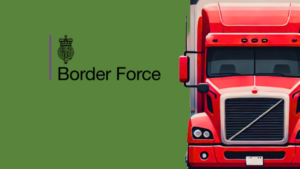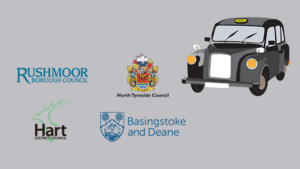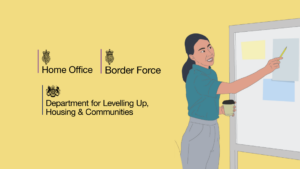
Making concessionary transport schemes for older and disabled Londoners more accessible and efficient
Zaizi’s discovery and alpha work rethought application, assessment and management processes for Freedom and Taxicard schemes to make life easier for older and disabled people from across 32 London boroughs.
The client
London Councils
Zaizi’s role
- Strategy
- Service design
- User research
- UX & content design
- Architecture
The brief
London Councils represent London’s 32 boroughs and the City of London. They run a number of direct services for member authorities. This includes:
- the Freedom Pass, which provides free travel on public transport for older and disabled people
- the Taxicard concessionary travel scheme, which provides subsidised journeys in licensed taxis and private hire vehicles for residents who have serious mobility or visual impairments
London Councils asked Zaizi to run a discovery exercise on these schemes with a focus on the application process and ways users manage their card or pass using online services. This was followed by an alpha phase in which Zaizi prototyped and tested potential solutions to provide an enhanced and more efficient service.
Zaizi stood up a great multi-disciplinary team. They got to the heart of issues that we had some idea existed. Through excellent user research they were able to define and articulate them in a way we had not been able to do. They were then able to turn user insight into actionable user stories and technology options that have been of real benefit to us.
Stephen Boom, Chief Contracts Officer, London Councils
The delivery
- 62-page discovery summary outlining key findings and recommendations
- 95-page user research report covering research approach, survey insights, key themes and insights, user needs, user stories, personas and vision prototype
- Technology investigation including analysis of current architecture, components, usage statistics and opportunities for future integrations and enhancements
- “Proof of concept” prototypes built using REACT and MS Dynamics
- Business case outlining indicative costs and potential benefits

Challenges
A hard-to-reach user base
The user base for the Freedom Pass and the Taxicard travel scheme is older and disabled people, segments of the population that are traditionally hard to reach for research. Recruiting suitable research participants took time and careful planning, with several avenues explored.
Zaizi worked with a research agency to find participants. We also worked with the Royal National Institute of Blind People, who helped get the word out. A survey was sent to all current card holders, and Zaizi followed up with respondents to secure engaged participants.
Different councils do things different ways
The Freedom Pass and Taxicard scheme are operated by 32 distinct London councils, plus the City Of London. While some entitlements relating to these services are statutory and shared by all users, others were available at the discretion of councils, and so differed from borough to borough. For instance, in some boroughs all Blue Badge holders are automatically eligible, but in others users would have to meet different criteria.
These disparities made creating a system to onboard new users particularly complex. Zaizi met this challenge through careful structuring, turning complex eligibility criteria into clear user flows which we then tested with users to ensure a seamless experience.
Complicated evidence requirements
To prove they were eligible for the scheme users often had to supply lots of documentation, such as photos, proof of residency and a valid passport. This was often difficult or daunting for our user base, which included a high proportion of individuals with additional needs – from visual impairments to health issues or low levels of media literacy.
It was important to ensure the onboarding to these services were built with accessibility in mind. Zaizi worked closely with other sectors of government, such as the team behind the Department for Transport’s national Blue Badge Service, to reuse data and make the process as easy as possible for users.
From the research
I can’t see too well these days and there was a lot of information to collect – luckily my daughter helped with my application, I don’t think I could have done it otherwise
Our research sessions are held in confidence, so the quotes below are not direct quotes; instead they are representative of our research findings and reflect sentiments commonly expressed by the users we interviewed.
How we put our learnings into practice
Ensuring users understand what they are entitled to
Our work at the alpha phase proved it was possible to create a tailored navigation path, outlining the concessionary travel schemes while also taking into consideration both a user’s situation and their location. This research showed us how to best display information that would help users understand:
- the different travel schemes available to them
- what the schemes offer, and how they can use their cards
- the evidence they needed to collect
Making applications easier
Our discovery work showed that many users found the application stage difficult and some needed special support. As well as working to make the application process accessible to users of differing needs and abilities, we introduced functions to streamline the process. For example:
- enabling users to collect evidence using their in-built device camera
- letting users save and later return to their online application, if they need to collect further information
- allowing users to access their account using a mobile number or email address, without having to remember a password
In the alpha phase we completed a trial integration with the Department for Transport’s national Blue Badge service. If users consented to data sharing between the Department for Transport and London Councils, we could collect that data and use it to tailor the user journey, bypassing the requirement to upload certain forms of evidence and making the process quicker and easier for users.
Helping staff use the system
The discovery phase also revealed that internal users found aspects of the processing applications inefficient and hard to manage. Our alpha work focused on finding ways to give processors:
- visibility of the current status of applications, in the form of a dashboard showing all key information in one place
- expandable summary screens, giving an overview of individual user’s applications, including relevant information, supporting evidence and the ability to review data when required
- an audit trail that traced evidence back to its source, automatically captured without need for user action




